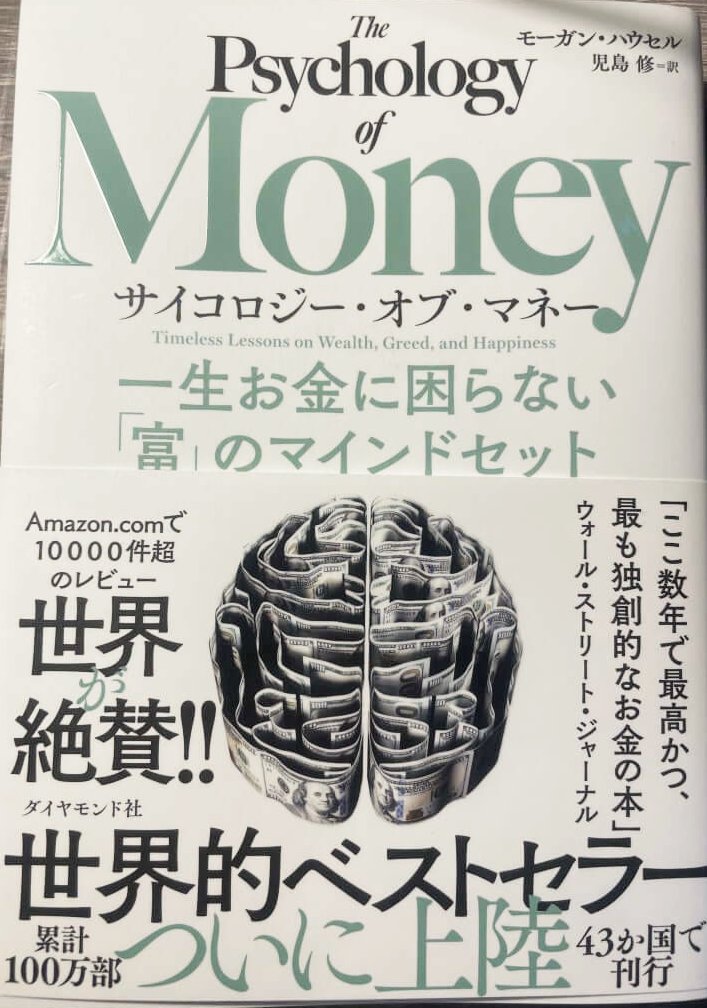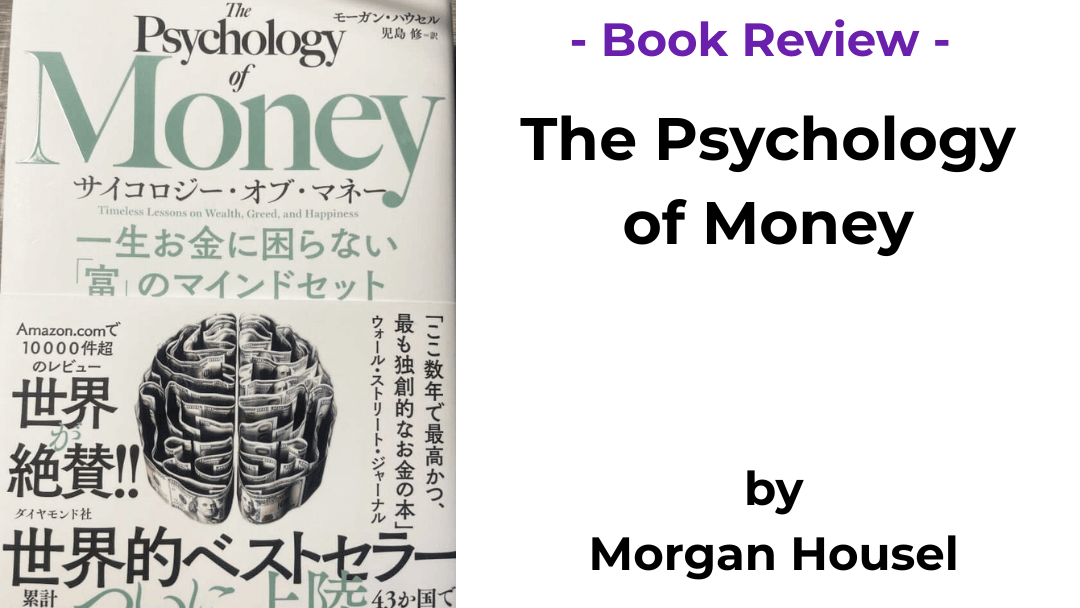
✨Stars — Indicate the difficulty level of the book content.
★☆☆ 1 Star: Easy to read and understand.
★★☆ 2 Stars: Moderate difficulty with some specialized terms.
★★★ 3 Stars: Advanced content with complex ideas and terminology.
About the Book
■Title: The Psychology of Money (サイコロジー・オブ・マネー)
■Author: Morgan Housel (モーガン・ハウセル)
■Publisher: Diamond, Inc. (ダイヤモンド社)
Morgan Housel’s The Psychology of Money is a global bestseller published in 43 countries and has sold over one million copies. This book does not simply deal with the techniques of making money and becoming wealthy; rather, it focuses on shaping the right attitude and values toward money.
One of the real-life stories featured in the book dates back to 2014. A man who had worked as a janitor for many years passed away, and it was revealed that he had left behind a fortune of eight million dollars. How was it possible for such an ordinary man to accumulate so much wealth? Through this example, the author shows that what matters is not the size of money itself, but the way we handle it—that is, the “psychology” of money.
The author, Morgan Housel, worked as a columnist for The Wall Street Journal and The Motley Fool. He is a writer with a deep interest not only in investment and economics but also in human behavior and psychology. His writing is both clear and highly engaging in its storytelling, allowing readers to easily relate.
I, too, was deeply moved many times while reading this book. It clarified my vague understanding of money and wealth, provided practical yet balanced advice on asset management, and most importantly, changed the way I view not just money but life itself. Thus, I feel this book is less of a financial guidebook and more of a “philosophical essay that invites us to reflect on the essence of money and life.”
Summary
This book emphasizes that when it comes to handling money, emotions, behavior, and psychology play a far greater role than simple knowledge or calculations. Author Morgan Housel uses various stories and examples to show why people often make irrational financial decisions and what kind of mindset we should adopt in such situations.
The book first discusses basic attitudes toward money, the role of risk, and how to preserve wealth. The author presents the idea that “no one is crazy,” explaining that because everyone’s environment and experiences are different, their financial decisions will naturally differ as well. He also stresses that maintaining wealth is far more important than simply becoming rich.
It then explores the power of compounding, the concept of invisible wealth, the value of making rational choices within human limits, and the lesson that nothing in life comes for free.
In the final chapters, the book addresses the nature of markets, the temptation of pessimism, and the role of belief and truth. Housel explains that while markets may fluctuate in the short term like a game, in the long run optimism ultimately wins. He concludes by confessing that the true essence of money is not merely the accumulation of wealth, but the ability to live more freely and meaningfully.
Notable Quotes
■「夜、安心して寝れること」を優先してお金の管理をすべし
Manage your money in a way that allows you to sleep peacefully at night
■自分の時間をコントロールするためにお金を貯め、使う
Save and spend money to gain control over your own time
■成功のために必要な代償を見極め、それを支払う準備をする
Recognize the price of success and be prepared to pay it
My Thoughts
Morgan Housel’s The Psychology of Money is one of the most impressive books I have ever read in the field of economics, filled with insights that significantly changed the way I think.
The idea that Disney’s success was built on just one out of hundreds of attempts — a “one in four hundred” outcome — the message that we should not fear risk but embrace it, and the advice to clearly recognize the game we are playing while respecting the diverse opinions of others, were the most practical and essential lessons I encountered when I first became interested in personal finance.
When I first started investing in stocks, I often felt anxious, checking prices every day to see if they went up or down. However, after reading the line in this book that says, “Manage your money in a way that allows you to sleep peacefully at night,” I realized that although I had started investing to become happier, I had instead become trapped in constant anxiety. From then on, I shifted my investment approach to a more long-term and stable direction.
I also used to begrudge the fees and taxes involved in stock trading, but once I began to view them as an “admission fee” for success, I felt much lighter. Paying money no longer felt like a loss, but rather a necessary process on the way to greater results.
There are countless practical books on finance and economics, but I believe this book became a global bestseller for good reason. It goes beyond investment and money management to offer wisdom and attitudes that apply to daily life and to life as a whole. I would especially recommend it to anyone who, like I once did, goes to bed with anxiety, or to those who want to learn sound knowledge and a healthy mindset about money.





Comments